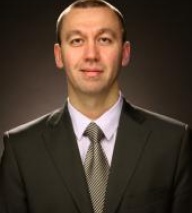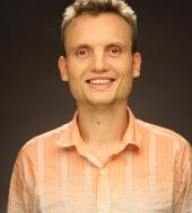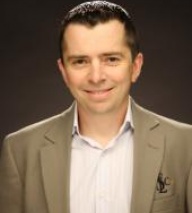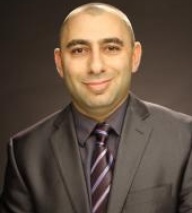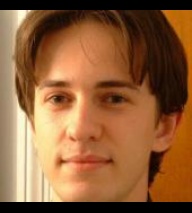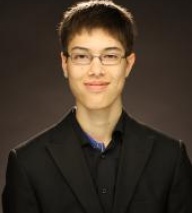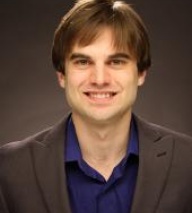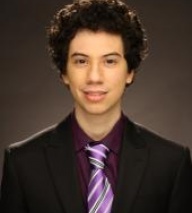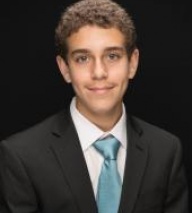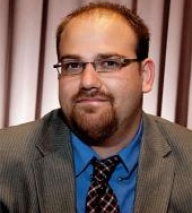2014 U.S. Championship Player Bios
Gata Kamsky
Gata Kamsky is a Soviet-born, American grandmaster, currently ranked No. 2 in the United States and No. 40 in the world. He was born in Siberia, Russia, in 1974 and learned chess at 7 years old. By 9, he had won the Under-15 USSR Championship, and then became a back-to-back Junior Champion of the Soviet Union at 13.
Kamsky emigrated to the U.S. in 1989 and earned his Grandmaster title the following year, also becoming the youngest player ever rated in the world top-ten.
Kamsky’s impact on American chess has been profound, having been the highest-rated American since his arrival in 1989 – second only now to Hikaru Nakamura. Kamsky won his first of four U.S. Championships in 1991, and the following year helped America grab its first-ever gold in the World Team Chess Olympiad.
In 1994, at age 20, Kamsky became the youngest-ever to challenge for the FIDE world title and the first American since Bobby Fischer. The 20-game match against reigning champion Anatoly Karpov was finally held in 1996, in Elista, Kalmykia, in Russia. Kamsky lost the match 7.5-10.5, but substantial political controversy surrounding the event ultimately led to an eight-year hiatus from professional chess for the American GM, partially in protest.
He earned an undergrad pre-med degree in chemistry, but then changed his mind and applied to law school. After graduating, Kamsky realized how much he missed chess. Egged on by friends and fans, he decided to give chess another try. "Now I feel much less pressure. I play for myself only," he said.
Kamsky returned in 2004 – “past his prime” at 30 years old – for an extraordinary second chapter in his career. By 2007, he had regained his elite form, qualifying for the Candidates Tournament that year and later winning the Chess World Cup as the 11th seed, knocking off Magnus Carlsen in the semifinals. In 2010, Kamsky won his second U.S. Championship – 19 years removed from his first title – and returned to successfully defend the crown in 2011. Kamsky secured his fourth U.S. Championship title last year.
Timur Gareev
Originally from Uzbekistan, Grandmaster Timur Gareev is a formidable opponent with unlimited potential. Coming off an undefeated, first-place performance at the 2012 North American Open, Gareev has proven that he has the ability to make a serious run at the U.S. Championship title.
"My grandfather taught me how to play chess at the age of four," Gareev said. "I practiced the game regularly challenging my father, friends, and schoolmates. At the age of eight I played my first rated competition. I started succeeding in my improvement very fast winning most of the national events."
At the age of 10, Timur said he was playing expert level strength, dedicating 4-6 hours every day mastering the game on his own and working with his coach Georgi Borisenko.
At the age of 12, Timur went for his first serious international event and conquered the title of Asian Champion U-14 years old at Bikaner, India.
In 2004 at the age of 16, he earned the distinction as the youngest-ever grandmaster from Asia. He traveled to the United States for school and joined the chess team at the University of Texas at Brownsville's from August 2005 to August 2006 where he helped the team win its first national championship. In 2007 he tied for 1st with Vladimir Egin and Anton Filippov in the Uzbekistani Chess Championship. Gareev studied Business & Accounting at the University of Texas at Brownsville, where he received his B.A. degree in 2011. He was awarded the Samford Fellowship in 2012, which awarded him a monetary stipend to assist his chess development.
Timur is an exceptional blindfold player, and he recently conducted a 33-board blindfold simul in St. Louis. He is still training to conduct an even larger simul, and he has been quoted as saying that blindfold training has helped him improve his focus.
Alex Onischuk
In 2012, Alexander Onischuk was named the head coach of Texas Tech University's nationally recognized chess program. This year, he led Tech to a birth in the Final Four of College Chess, the national collegiate championship.
Onischuk has been invited to every FIDE World Cup Championship since 2005. He has won more than 20 major tournaments, including the 2000 Ukrainian Championship and the 2006 U.S. Championship. He became a grandmaster in 1994 at the age of 18 and relocated to the U.S. in 2001. When he won the 2006 U.S. Championship, he called it the happiest moment of his career to have his name on a trophy alongside players such as Fischer and Morphy.
Onischuk was key to America's bronze medal finishes in 2006 and 2008 Olympiads. He has an impressive international record: He placed second in the 2007 International Chess Festival in Biel and also won the super-strong Moscow Open in January 2009. He delivered a gold-medal performance on board two at the 2009 World Team Championship in Bursa, Turkey.
Alex thinks that what separates him from Grandmasters of a slightly lower stature is his superior understanding of the game, gained from working with elite players, including former World Champions Anatoly Karpov and Veselin Topalov.
For five years he played for the championship college team at the University of Maryland Baltimore Country (UMBC), leading the college to multiple national championships and graduating in the spring of '06 with a degree in linguistics. For the past 18 years, Onischuk has been on the top 100 players in the world. He has finished among the top three in the U.S. Championship seven times.
Varuzhan Akobian
The weather was so harsh in the years that Armenian-American Grandmaster Varuzhan Akobian spent in Mongolia, that his father forbade "Var" and his sister Armine, from playing outside. He taught them chess, a perfect indoor distraction. "From the very beginning," Var says, "I was different from other chess kids. It was never just a game for me. I always wanted to be a Grandmaster, and knew that I would do what it takes." As a teenager living in Yerevan, the capital of Armenia, Varuzhan spent all day playing chess and soccer. His teachers agreed that he could focus on chess, without fear of truancy charges. "This is one way in which Armenia is very different from the United States. If I went to high school here, I never could have spent so much energy on chess."
He immigrated to the U.S. in 2001 and a year later earned the Samford Chess Fellowship, which allows a talented junior to focus on chess for two years. The prize paid off quickly, as he tied for first in the 2002 World Open and also won the Irme Koenig GM Invitational. The following year, Akobian scored 8/9 to win the 2003 U.S. Junior Closed Championship, winning his first seven games. He was officially awarded the grandmaster title in June 2004, after which he won the World Open again, clinching it with a sparkling win against Alexander Shabalov.
Varuzhan excels in positional battles and admires the games and style of Armenian hero, World Champion Tigran Petrosian. His favorite opening with black, just like Petrosian, is the French Defense. Var's advice to players aspiring to improve is this: "Don't expect to see constant improvement. You build knowledge and work hard, and after a while, you'll see a big breakthrough."
Recently, GM Akobian moved from sunny California to Topeka, Kansas, where his wife is attending law school at Washburn University. He has joined the Resident GM rotation at the Chess Club and Scholastic Center of Saint Louis, which brings some of the country's top players to the Chess Club to give private lessons, present lectures and share their chess knowledge witht the club's more than 1,000 members.
Sergey Erenburg
Sergey Erenburg was born in Russia and immigrated to Israel when he was 15. He first won the Israeli national championship in 2004 at the age of 21.
Erenburg came to the U.S. in 2007 and earned both a bachelor’s degree and master’s degree in Mathematics and Statistics from the University of Maryland Baltimore County (UMBC). He served as the captain of UMBC's chess team from 2008-2011 and helped the team secure two Pan-American Intercollegiate Chess Championships (2008, 2009) and two President's Cups (2009, 2010).
Sergey went on to earn an additional master’s degree in economics at the University of Pennsylvania. He served as an analyst and writer for Chessbase for more than 10 years, and he has won (or shared first) in countless major events including the North American Open (2013, shared), World Open (2013, shared), National Chess Congress (2012, shared), Continental Class Championship (2012, shared) and more.
Erenburg considered himself a chess professional until the age of 23, but he ultimately determined it would have been difficult to make a living in chess citing the lack of financial opportunity. He currently lives in Richmond, Virginia, and works at Capital One as a senior data analyst.
In January of 2013 Erenburg switched his allegiance from the Israeli Chess Federation to the United States. "I felt that given that I live in the U.S.A. and am a citizen, it is my right and duty to help popularize and contribute to chess in the U.S.A.," he said.
He has been active in promoting chess in his home state and is currently helping the Virginia Scholastic Chess Association promote the benefits of chess to area schools.
Ray Robson
Ray Robson is a member of the Webster University chess team that recently captured the 2013 national collegiate chess championship. Ray learned chess at age 3 and has earned seven national scholastic titles since. Robson finished in the top 10 at the World Youth Championship from 2004 to 2007 and won Super Nationals in 2005. He defeated his first grandmaster in 2006, the same year he earned the USCF National Master title.
Ray has been studying under Susan Polgar for the past two years, and he is widely considered to be America's brightest hope to become an elite GM since Hikaru Nakamura. In fact, Ray broke Hikaru's record and currently holds the title as the youngest-ever American Grandmaster, fulfilling the requirements about two weeks prior to his 15th birthday.
Ray's first-ever major open tournament win came in 2008 at the Miami Open. He received his first norm in Tromso, Norway in August of 2009, and he earned his second in Skokie, Illinois that same month. He earned his last GM norm in Montevideo, Uruguay in October 2009.
He has turned in a number of impressive performances as of late and appears poised to make a statement at this year's championship.
Sam Shankland
When Sam Shankland was just 18, he announced he would be retiring from the game of chess. In order to honor his previous commitments, however, he agreed to play in one more event, the 2010 U.S. Junior Closed Championship, which he managed to win after facing back-to-back playoff matches against Parker Zhao and tourney favorite GM Ray Robson. That achievement offered him an automatic invitation to play in the 2011 U.S. Championship, which ultimately proved to be a difficult offer to refuse.
Sam performed admirably at the 2011 U.S. Championship, edging veteran GM Alexander Onischuk in a playoff to reach the four-player quad finals. There he ran into eventual champion GM Gata Kamsky, who topped him 1.5-.5. After his defeat, Shankland remained upbeat.
“Just because I’m not in the running for first place doesn’t mean the tournament is over,” he said. “Plus third place sounds cooler than fourth. You can call it a bronze medal.” Shankland's positive attitude proved prescient as he topped GM Robert Hess in a playoff for third place. The Brandeis University student has called the U.S. Championship "his dream tournament for the year."
Shankland failed to qualify for the U.S. Championship in 2012, and finished 13th out of 24 players in 2013. But he has been on top of his game as of late, pushing his USCF rating to an all-time high of 2707 following the Eastern Class Championshipsin mid-March.
Because of his usually strong, but sometimes unpredictable, play, he is an intriguing player to watch at this year's championship.
Aleksandr Lenderman
Alex Lenderman first started playing chess with his grandfather when he was 9. From 2004-2007, he attended Edward R. Murrow High School in Brooklyn, N.Y., and was a member of the super-team that won four straight, national high-school titles. The journey of this high-school chess dream team was documented in the 2007 book The Kings of New York, by Michael Weinreb.
Since that time, Alex has been a formidable force in the chess world and has solidified himself as a young rising star. In 2008, he managed to barely edge GM Sergey Kudrin to win the USCF's Grand Prix, and in 2009, he ran away with the competition.
Lenderman is an active member of the renowned Marshall Chess Club in New York City and was crowned the Marshall Chess Club Champion in December 2013, beating Kudrin and IM Aleksandr Ostrovskiy in the process. He has played in more than 20 rated events since the start of 2014 and will be a formidable contender in this year's championship.
Alejandro Ramirez
Last year’s runner-up, Alejandro Ramirez was inspired by the movie Searching for Bobby Fischer when he was four years old. He became FIDE Master at the age of 9, an International Master at the age of 13 and a Grandmaster at the age of 15.
In May 2003, he secured his first GM norm at 14 by scoring a stellar 7/9 at the Capablanca in Memoriam Tournament held in La Habana, Cuba.
The following year, he tied for first place (together with GM Lenier Dominguez from Cuba) in the Zonal Tournament held in Guayaquil, Ecuador, in August 2003, to secure his second GM norm.
He obtained his third norm a few months later at the Los Inmortales Tournament at Santo Domingo, Dominican Republic. At the age of 15, he became the first Centro-American to achieve the Grandmaster chess title awarded by the International Chess Federation (FIDE), and became, at that time, the second youngest chess grandmaster.
Major tournament victories include first place in the Morelia Open 2008 and the first place in the U.S. Chess Open 2010 held in Irvine, California.
He studied video game design at the University of Texas at Dallas (UTD) ultimately earning a master’s degree in Arts & Technology. Alejandro currently serves as an editor for the popular chess news website ChessBase.
Mackenzie "Mac" Molner
Born in Englewood, N.J., Grandmaster Mackenzie "Mac" Molner learned the king’s game at sports camp as a seven-year-old -- and two years later bagged the state K-3 championship. Taking heed of an early coaching tip, Molner developed a high-pressure attacking style of play in his young career, which frequently saw him ranked as the country’s top player in his age group. A win at the 2004 Denker Tournament of High School Champions confirmed suspicions, and by 2007 Molner was representing the U.S. at the World Junior Championship in Yerevan, Armenia.
“When I got invited to play in the World Junior Championship, that was a big, exciting moment for me: I had never played in a tournament outside of the U.S.,” Molner said. “That tournament reignited me, I would say. It made me want to work harder, to keep pushing.”
That hard work began to pay off in 2010, when Molner’s FIDE rating made a 150-point leap in the first six months. Later that year, he went on to claim his International Master title in glorious fashion: His performance at the at the 25th North American Masters in Skokie, Ill., was so impressive, it simultaneously earned him his final IM norm - as well as his first GM norm.
“It was something that was not on my radar at all, I just wanted to get my last IM norm and be happy with that, maybe finish out college,” Molner said. “But getting the simultaneous GM norm threw me a curveball - a good one.”
The extra incentive has recently snowballed into some of the finest play of Molner’s career, a continued upward trajectory that deems him more-than worthy of the 2014 U.S. Championship at-large wildcard. He achieved his third and final GM norm at the New York International last June, then underlined his new title with a tie for first at the 2013 U.S. Open in August. Padding nearly 150 points on his USCF rating since 2013 currently sets it to its high water mark at 2634, making Molner the 27th ranked player in the country.
Molner currently lives in Tucson, AZ, after earning his degree from New York University in Romance Languages, with a specialty in Spanish (he also speaks German, French and Russian). For more info about him visit grandmastermac.com.
Daniel Naroditsky
Daniel was born on November 9, 1995, in San Mateo, California, and learned how to play chess when he was six-and-a-half years old. He started to take serious chess lessons shortly thereafter, and has since studied with a number of famous grandmasters, including his current coach, GM Lev Psakhis from Israel.
Daniel is currently a senior at Crystal Spring Uplands School in Hillsborough, California.
Besides playing competitive chess, Daniel is an active ambassador for scholastic chess in the United States; he gives simuls to kids and adults in schools and senior centers, and has been featured in numerous TV and newspaper interviews and articles (both local and national). He has also given numerous talks to chess clubs in local schools.
Daniel has many interests: history, music, foreign languages, art, and mathematics. However, most of his "spare" time is devoted to the study of chess. He is an avid researcher of historical chess facts. In the words of one of his coaches: “His pure love for the game of chess is enormous.”
Daniel earned an invitation to the 2014 U.S. Championship by winning the 2013 U.S. Junior Closed Championship.
Josh Friedel
Josh Friedel earned his Grandmaster title after the 2008 U.S. Championship. He learned chess at the early age of 3 and began tournament play at age 6. In 1995, he scored his first tournament victory, winning the New Hampshire State Amateur Championship at age 8.
His first major tournament victory was in 2001 when he won the Pan Am Open. In 2007, Friedel earned the prestigious Samford Scholarship, allowing him to focus on chess full-time for two years.
Josh Friedel was born and raised in New Hampshire. At the age of 19, Friedel moved to the San Francisco Bay area and has now relocated to Milwaukee where serves as an instructor for the Wisconsin Chess Academy.

